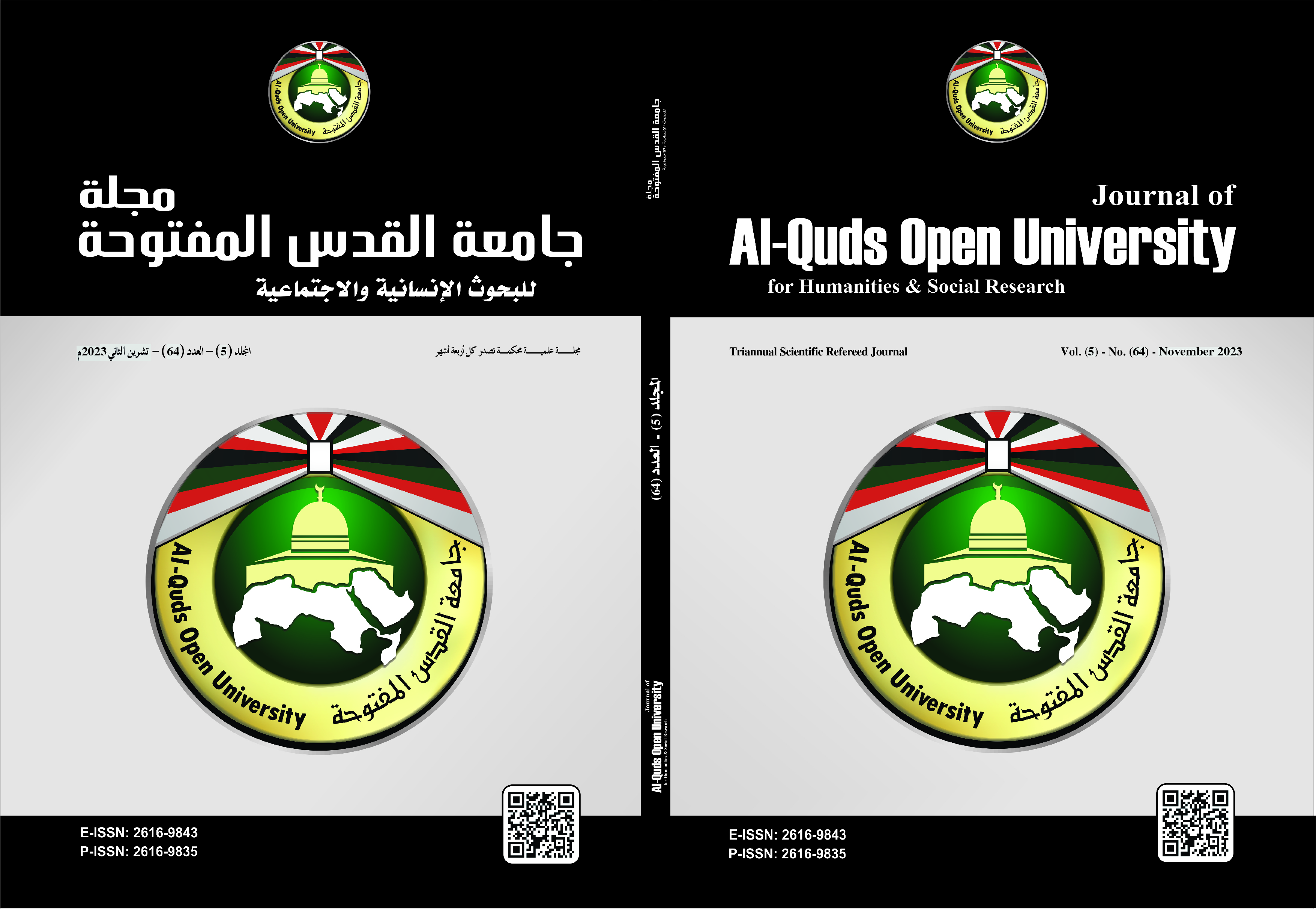A Genre Analysis of "Attwa", the Reconciliation Instruments in Arabic Language
DOI:
https://doi.org/10.33977/0507-000-064-006Keywords:
Attwa, closing, genre analysis, gratitude, peace building, reconciliation instrumentAbstract
The present study investigates the generic structure of “Attwa", the reconciliation instrument in Arabic language, specifically within Jordanian society. The data for this study consists of ten instances of Attwa from 2017 to 2022. (Bhatia, 2004) notion of genre is considered in this study. The study revealed how each component of the text contributes to the overall communicative function of conveying gratitude and thankfulness. Furthermore, the study also emphasizes the need for qualitative and quantitative research that delves deeply into analyzing the content of Arab reconciliation instruments. Additionally, this research should be extended to other disciplines in Arabic studies and to other languages in order to compare and contrast how peace building is expressed.
References
References
- Berkenkotter, C., & T. Huckin. (1995). Genre Knowledge in Disciplinary Communication:
- Cognition/Culture/Power. Hillsdale, NJ: Lawrence Erlbaum Associates.
- Bhatia, V.K. (1991). A Genre-Based Approach to ESP Materials. World Englishes.
- Bhatia, V.K. (2004). Worlds of Written Discourse. London: Continuum.
- Campbell, I. (2020). Sulha Traditional Arabic Conflict Resolution: A Conversation with Elias Jabbour. University of Oregon.
- Castleton, B. (2006). Frequency and Function of Religiously-Based Expressions. In J.A.
- Morrow (ed.), Arabic, Islam, and the Allah Lexicon. Lewiston. New York: Edwin Mellen Press.
- Elijah, M.B. (2018). Tribalism: Thorny Issue Towards Reconciliation in South Africa - A Practical Theological Appraisal. HTS Theological Studies. On-line version.
- Enright, D., Freedman, R., & Rique, J. (1998). The Psychology of Interpersonal Forgiveness. In R. D. Enright & J. North (Eds.), Exploring forgiveness. Madison, WI: University of Wisconsin Press.
- Farghal, M. (2006). Situational and Discoursal Social Honorifics in Jordan: An Empirical Study.
- Fairclough, N. (1995) Critical Discourse Analysis. London: Longman.
- Ferguson, C. (1986) The Study of Religious Discourse. In J. Alatis and D. Tannen (eds.), Language and Linguistics. The Interdependence of Theory, Data and Application. Georgetown Round Table on Languages and Linguistics, 1985, Washington, D.C: Georgetown Press.
- Huja, A. (2015). The Tribal Custom in Reform (in Arabic), (3rd ed). Hebron, Palestine.
- Hyland, K. (2005). Disciplinary Discourses: Social Interactions in Academic Writing. Harlow, England: Pearson Education Limited.
- Ide, S. (2005). How and Why Honorifics can Signify Dignity and Elegance: The indexicality of Reflexivity of Linguistic Rituals. In R. Lakoff and S. Ide (eds.). Broadening the Horizon of Linguistic Politeness. Amsterdam: John Benjamin Publishing Company.
- Levinson, S. (1983). Pragmatics. Cambridge: Cambridge University Press.
- Little, A. (2017). Fear, Hope and Disappointment: Emotions in the Politics of Reconciliation and Conflict Transformation. International Political Science Review, 38(2), 1–13.
- Rosoux, V. (2004). Human Rights and the “Work of Memory” in International Relations. Journal of Human Rights, 3(2), 159–170
- Sell, R. (1991). Literary Genre and History: Questions from a literary Pragmaticist for Socio-Semioticians. In E. Ventola (ed.), Approaches to the Analysis of Literary Discourse. An Examination of the Role of Relational Self -Worth and Transgression History. ETD Collection for University of Nebraska - Lincoln.
- Swales, J. (1990). Genre Analysis: English in Academic and Research Setting. Cambridge University Press.
Downloads
Published
How to Cite
Issue
Section
License
Copyright (c) 2023 Journal of Al-Quds Open University for Humanities and Social Studies

This work is licensed under a Creative Commons Attribution 4.0 International License.
- The editorial board confirms its commitment to the intellectual property rights
- Researchers also have to commit to the intellectual property rights.
- The research copyrights and publication are owned by the Journal once the researcher is notified about the approval of the paper. The scientific materials published or approved for publishing in the Journal should not be republished unless a written acknowledgment is obtained by the Deanship of Scientific Research.
- Research papers should not be published or republished unless a written acknowledgement is obtained from the Deanship of Scientific Research.
- The researcher has the right to accredit the research to himself, and to place his name on all the copies, editions and volumes published.
- The author has the right to request the accreditation of the published papers to himself.













_2.png)
_.png)
_2.png)
_1.png)
_.png)

